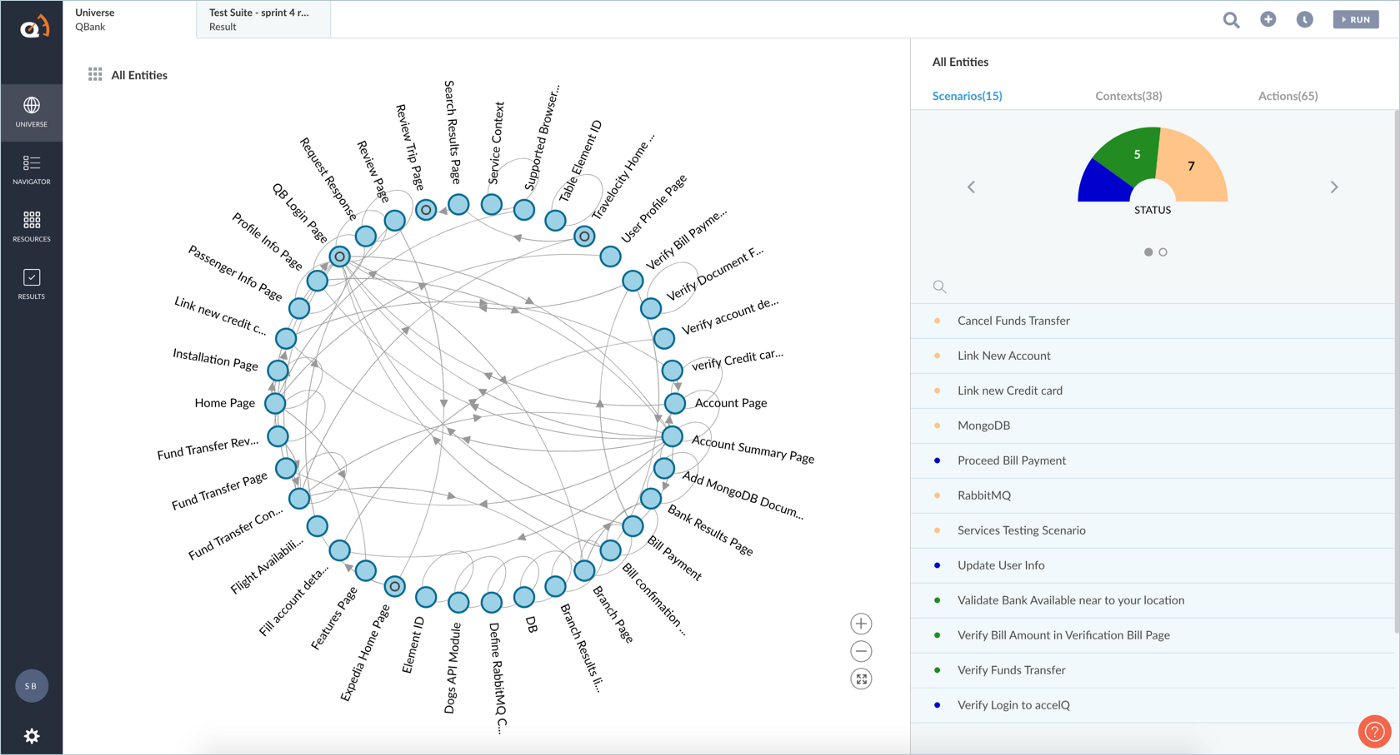Automation testing plays a very vital role for software development companies. It builds trust amongst the company and their clients about the quality product. Also, it makes the software developer more confident because they can work on other modules without worrying about whether the application has a bug in any existing functionality. Infusing automation in software testing is a must but hiring automation engineers to do this effectively is time-consuming, especially when it comes to onboarding software testers within the automation project.
What if there is an easy solution to training software testers in software automation? What if it just takes a couple of days to familiarize a software tester with automation and they can immediately start automating the project? In this blog, I will share some insights about low-code automation platforms and how they can help in increasing the efficiency and productivity of software testers.
What is Low-Code Automation Platform?
Low-Code Automation Platforms are seen as the unicorn of automation solutions. It is a software solution that helps companies automate test cases easily and steadily without the need of creating codes. These platforms are easy to use. It’s one of the best ways to improve software development productivity and saving time and money for organizations.
Low-code automation tools are a boon for test engineers who do not have to code/write any test script to automate their applications. These tools are easy, fast, and eliminate a lot of human errors while automating a project.
How will Low-code Automation Tools benefit Organizations?
- A no-code automation tool helps software testers to focus on testing the feature from various aspects since automating it will be easier than the traditional automation approach.
- Learning automation will no more be overhead and software testers can be onboarded in the automation project within a couple of days.
- Low-code automation tools can speed up the automation process and reduce programming-related errors. It eliminates the hassle of coding, resulting in easier maintenance of the automation suite.
- It can drastically reduce the amount of time needed to automate applications.
- Low-code automation tools increase the quality of automation while reducing costs.
There are quite a few low-code automation solutions available in the software industry today. I would like to share my experience with one such automation solution i.e ACCELQ
— AI-powered Codeless Test Automation Tool.
My Experience with ACCELQ

Image Courtesy — ACCELQ Twitter
I first came across ACCELQ while participating in the ACCELQ automation hackathon organized by The Test Tribe. I was a beginner at automation with very less exposure to automation frameworks. I had only heard about low-code automation platforms and not even remotely had the confidence that I would be able to complete the automation hackathon.
The hackathon had 5 challenges to resolve with guided tutorials and videos to understand the automation tool. As a beginner in automation, the tool was beyond my expectations. I was stunned by the features ACCELQ could offer. I was able to understand the ACCELQ automation platform and complete the tasks within a couple of hours. What should have taken months for a newbie to automate, could just be done in a few hours!
What I liked about the ACCELQ Automation Tool
1. ACCELQ Element Locators
ACCELQ very smoothly locates elements of any application. While many software testers spend a lot of time just to locate an element, ACCELQ does it just within seconds!
2. ACCELQ Universe

Image Courtesy — ACCELQ
One of the most tedious tasks in any automation project is to understand the linkages between various automation modules and their elements. ACCELQ Universe is a smart interface — a graphical blueprint of the automation with visual mapping, and relation of the application assets and their interactions in between.
3. Data Variation — Data-driven testing
Data variation is when the application is tested with multiple data sets for the fields. If you have already worked with any automation framework, you must have experienced how tough it is to handle data variation if there are several fields in the application. ACCELQ makes it seamless to test an application with a huge volume of data. This helps in eliminating the time taken in testing and automating the application.
4. Cloud-based Automation Tool
One of the best features that ACCELQ offers is a Cloud-based automation platform. In any automation project, it becomes very challenging to work as a team. The automation code written by the team needs to be first reviewed then merged into the repository. A lot of care needs to be taken while merging the automation code since it can impact the existing automation suite. Also, software testers work on their local machine and their automation code cannot be accessed by others in the team unless committed. ACCELQ is cloud-based and each line automated in ACCELQ is auto-saved, making it one of the most salient features for software testers.
5. Advanced Smart Features

ACCELQ has kept a keen eye even on the minute details which will be important for an automation platform such as multiple browser support, parallel execution, scheduled automation runs, custom functions, etc. A thoughtful functionality offered by the ACCELQ solution is “Element Self-healing” — AI-based element detection in case there is any change in the web element locator.
ACCELQ will definitely make a breakthrough in the software testing industry with its uniqueness among low-code automation tools.
My Takeaway:
Low-code software testing frameworks provide testers a great deal of power when it comes to automation. They have effectively lowered the level of coding skills needed to create a quality test automation solution. This has enabled testers to spend more time on business value-add work and less time on the actual testing, thus allowing them to be more efficient. If your organization is thinking about adding test automation into its test strategy, then low-code software testing platforms are certainly worth considering as they can offer you many benefits such as quick ramp-up and reduced learning curve for testing with less maintenance over time.






